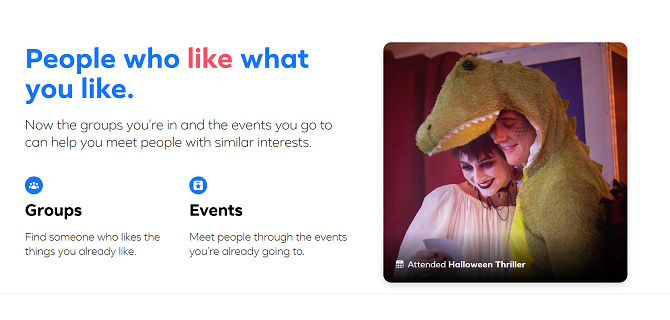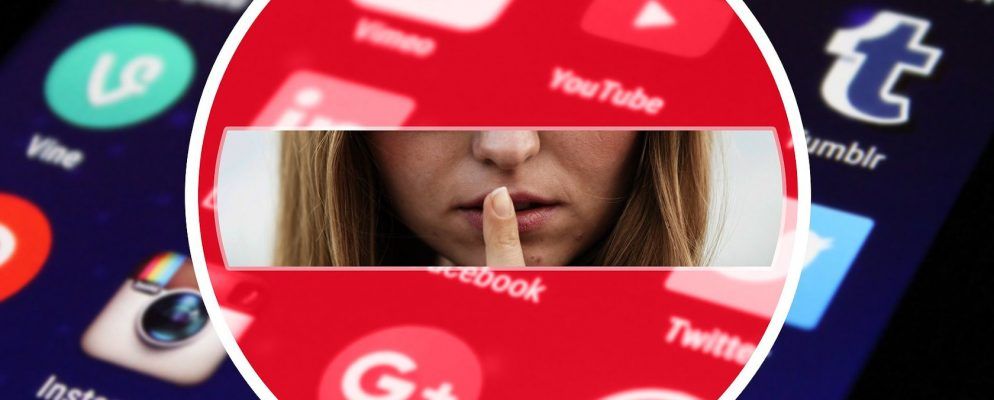Dating apps have revolutionized the way people meet in the modern world—making it easier than ever to find romantic partners who share your hobbies, interests, and goals.
Advertisement
However, like most new technology, they also bring various concerns. With the launch of Facebook Dating, these concerns have only been heightened due to the company’s track record around private data.
We spoke to Anna Collard, the Managing Director of KnowBe4 Africa, to find out some of the privacy risks that platforms like Facebook Dating and other dating apps pose to users. Here are five of the biggest privacy disasters and risks these apps can expose us to.
1. Company Data Use

The primary privacy concern from dating apps like Facebook Dating is not breaches or leaks, but the data harvesting from the providers themselves.
“What many people don’t know is that their personal information is worth a lot of money to companies. There’s that saying: personal information is the new oil,” Collard notes.
“These companies don’t just make money by finding a mate for you. They make money by collecting your information and building profiles and then selling that information,” she adds.
At the end of the day, Facebook is one of the biggest advertising platforms online. This means your dating profile activity and data could be shared for targeted advertising
The company, however, claims it will keep your Dating profile separate from your Facebook profile separate. But there are already instances where the data between your dating profile and regular profile are shared. For example, Facebook Dating suggests matches based on your groups and events.

It’s also possible that the extent of data sharing between Facebook services will increase in the future, as the company has done after its acquisitions of Instagram and WhatsApp.
“Even though Facebook claims that they will keep the Facebook Dating app completely separate from the general Facebook app, I don’t think that what Facebook says can necessarily be trusted,” Collard said.
After all, companies are able to update their terms of service at a later stage. Facebook has already reneged on the commitment to not show advertising on WhatsApp, with plans to add ads to the app’s Status feature.
How to Improve Dating-App Privacy
You can limit the amount of data collected by companies by adjusting your privacy settings and carefully reading the terms of services to understand exactly what information is collected.
However, the best way to avoid data harvesting is to avoid the services completely. This is not always possible in the digital era, but you can aim to be more selective in which services you use.
Collard notes that we should reconsider whether we want a single company to have a monopoly on so much personal information, from dating to business information.
She also adds that you should post anything on an app that you wouldn’t want to become public knowledge, since this is always a risk.
2. Private Data Leaks and Breaches

The extent of data harvesting in dating apps already compromises privacy, but this issue is compounded by security breaches and data leaks.
With private data proving so valuable, it’s a frequent target of hackers and cybercriminals. For Collard, security breaches aren’t a matter of if it happens, but when it happens.
The consequences of a dating-site data breach can be far-reaching. Collard points out that after the Ashley Madison leak, people who had used their work email addresses for the site were at risk of being identified by their employers.
“Any sort of social media account carries some privacy risks, but if you look at what you’re sharing on these dating sites, it’s much more sensitive information,” she notes.
Furthermore, the more third parties or apps your data is shared with, the more points or nodes there are for cybercriminals to target.
How to Avoid Getting Your Social Media Data Leaked
There’s nothing a user can do to prevent data breaches on the platform’s side. However, you can take some precautions.
These include not reusing passwords, usernames, or email addresses across platforms.
Collard suggests that dating app users, especially those sharing sensitive information such as HIV status or sexual preferences, should set up a completely unique email address and profile when configuring Facebook accounts, if possible.
When a dating platform requires you to sign in with your Facebook profile, or another pre-existing profile, it prevents you from mitigating the risk of breaches.
3. Cyberstalking and Stalking Risks
Since the goal of dating apps is to meet up and go on dates, they present a unique physical risk that most other apps don’t have. It’s important to be aware of this and to be selective in arranging dates.
When it comes to cyberstalking, there are multiple ways for people to link your dating profile to your other online profiles. This is especially true if you re-use usernames and profile pictures across sites.
Cyberstalking is a risk on any social platform, but dating apps can result in cyberstalking turning into physical stalking.
Furthermore, if you link your Instagram profile to your dating profile, geo-tagging your pictures can make it much easier to find the places you frequent, such as your workplace or favorite café.
“If you use an account name on, let’s say Tinder, that you use somewhere else, it’s very easy for even non-technical people to find out who you really are. You have to be really careful that whatever you set up there—that you don’t expose who you are and where you live,” Collard says.
How to Reduce Cyberstalking Risks
To mitigate the physical risk of meeting up, Collard suggests the following tips:
- Meet in public places.
- Get to know someone before being alone with them.
When it comes to cyberstalking, it’s important to reduce the risk by keeping your dating profile separate from other profiles that can be used to identify you or your workplace. In order to keep your profiles separate, take the following precautions:
- Use unique images of yourself
- Never post or share your home address
- Don’t share any identifying information that makes harassment and stalking easier for strangers.
- Keep private communications within the dating app’s chat client for as long as possible, since they don’t require you to share a phone number like other chat apps.
4. Data Used for Extortion and Discrimination
As Collard points out, dating apps have more sensitive personal data than the average social media app.
This includes sexual preferences, fetishes, dating preferences, HIV status, and other private information that can be used to extort or discriminate against individuals.
Extortion and discrimination can happen when data is leaked or when a person’s identity is linked to a dating account. This is especially true in contexts or countries where this information attracts significant stigma or in countries where homosexuality is illegal.
How to Avoid Cyber-Extortion
Again, use caution regarding who you trust and what personal data you share on dating apps. Follow these simple tips:
- Use a unique email address for a dating profile.
- Do not share intimate images that can be used to blackmail you.
- Read the privacy policy and terms-of-service of dating sites and apps to see what data they share with third parties.
Stay Safe on Online Dating Platforms
Dating apps always carry privacy risks, but make sure to take precautions when choosing to use a platform.
Always take into account a company’s track record with user privacy and data. And most of all, stay safe.
